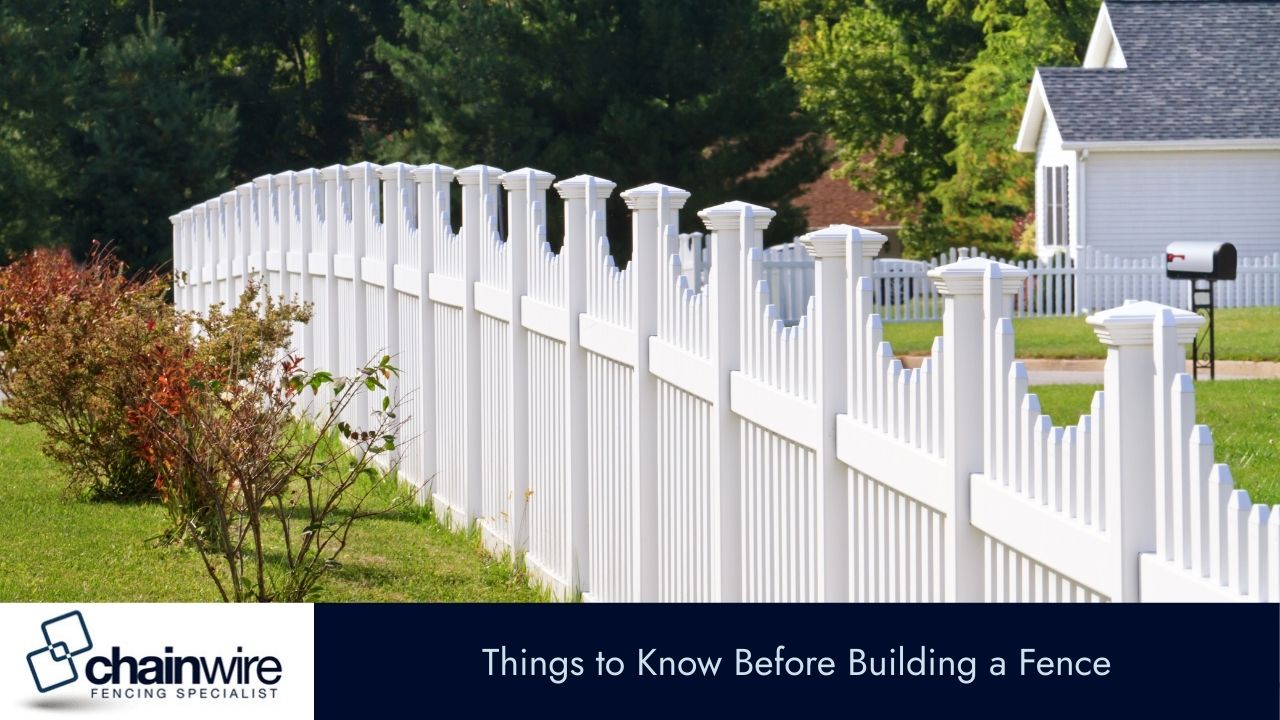Building without preparation can lead to fines, disputes, or wasted time. Many ignore local rules or boundary checks, leading to costly mistakes.
Installing the wrong type of fence or skipping permits often results in redo costs or neighbour issues. Choosing based only on looks or price creates long-term problems. Disputes, poor placements, or illegal builds can force you to remove what you just built.
This guide covers what to check before you install a fence—without wasting time or money. It explains how to plan the build, choose materials that suit your needs, check local laws, notify neighbours, and work with a contractor to avoid risk.
Define What the Fence Should Do
Every fence serves a function. Some keep pets in, others mark out a property line or block views. Before picking materials or hiring contractors, set a clear purpose.
If your goal is to stop a dog from escaping, a basic chain wire fence is often enough. But if you want to block noise or increase privacy, you’ll need a taller structure with no gaps. In some cases, you might want security plus a design that fits your garden.
Once you know what the fence must achieve, you can start choosing based on features—not just cost or looks.

Match the Fence Material to the Job
Not all fencing materials work for all purposes. Some cost more upfront but last longer with little effort. Others look good but may require maintenance or weather protection.
Timber looks clean but can rot, split, or fade. It needs sealing and treatment to last. Vinyl copies the look of timber without maintenance. Wrought iron suits front yards or decorative spaces, while steel works well in high-security zones.
If your fence needs to handle constant outdoor exposure, avoid untreated wood. For areas like school ovals, parks, or perimeter boundaries, black chain wire offers reliable strength without blocking visibility. See how this applies in our chainwire fencing service for high-exposure and multi-use areas.
Always check how much work each material needs—not just now, but over the next 5 to 10 years.
Know the Legal Limits and Council Requirements
Don’t build before checking what your local council allows. Many councils limit fence height, colour, and placement. You may need a permit or even formal neighbour notice if the structure is shared.
In residential zones, there are often rules about the “better-looking side” of the fence needing to face the street. Some councils also limit the materials you can use on shared or front boundaries.
A good contractor will usually know the rules—but it’s still your job to make sure the build meets them. Avoid fines or redo costs by checking early with your local office or state planning site.

Talk to Your Neighbours First
Even if you’re building entirely on your land, let neighbours know. It shows respect and can help avoid tension. If the fence is along a shared boundary, the law may require written agreement on who pays and what goes in.
In NSW, a dividing fence must be built on the common boundary unless both parties agree otherwise. If you plan to build something different from what the law assumes—like a higher fence or more expensive style—you’ll need consent.
Keep everything in writing. Verbal agreements can lead to trouble if disputes come up later.
Don’t Skip the Professional Help
Fence installation might seem like a weekend job, but mistakes cost more than hiring experts. Contractors ensure everything is level, secure, and built to code.
Professionals can also guide you through council approvals, neighbour paperwork, and ground conditions that may affect fence stability. Some blocks have uneven soil or sloped ground that make DIY risky.
We’ve handled fencing for schools, sporting areas, and secure cages—every site has different needs. Our team helps you assess the block and get it right the first time. For open fields or courts, view our sporting field fencing service.
Final Advice from Chainwire Fencing
Building a fence without a plan can lead to boundary issues, extra costs, and council problems. We help assess the site, select the right setup, and meet local rules.
If you’re preparing to install a fence, contact our team. We’ll review your goals, check boundary lines, and recommend a setup that fits your property.
Contact Chainwire Fencing Newcastle for a site check and quote

